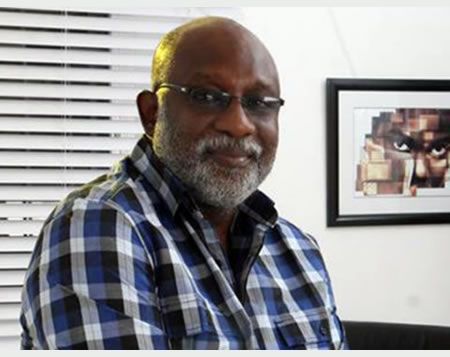 Ondo state has been rated by the World Bank as one of the best in the area of maternal child health service in the country.
Ondo state has been rated by the World Bank as one of the best in the area of maternal child health service in the country.
Apart from this, the state was also rated high on Performances Based 7 (PBF) in the ongoing Nigeria State Health Investment Project (NSHIP) in the country.
The World Bank representative, Dr. Frish Yuril, who revealed this during the NSHIP Midterm Review (MTR) meeting held in Akure, rated the state highest in performance among the two other states participating in the World Bank assisted project.
Yuril defined PBF as “a form of incentive where health providers are at least partially, funded on the basis of their performance to meet targets or undertake specific actions. It is defined as fee-for-service-conditional-
According to him, the project goal is designed to increase the delivery and use of high impact maternal and child health interventions and improve quality of care at selected health facilities among the participatory states namely, Ondo, Adamawa and Nasarawa states.
He explained that the review was primarily based on “PBF which means autonomy, strengthened supervision and payments based on the quantity and quality of services; and the Decentralized Facility Financing (DFF) that is, autonomy, strengthened supervision, additional payments not linked to any service delivery: half of the amount PBF received.”
According to him, the NSHIP has improved the coverage of some health services, structural quality of care significantly, reduced Out-Of-Pocket (OOP) expenditure which are statistically significant in coverage of Penta 3 immunization of young children, saying that NSHIP facilities, whether PBF or DFF, exhibit better structural quality.
He stated that there was little difference between PBF and DFF in Ondo State, but revealed that there were differences in the Adamawa and Nasarawa states especially on process quality and institutional deliveries.
Yuril, however, pointed out that NSHIP did not improve the clinical quality of care in Ondo State like the other two states; and there was no statistically significant impact on full immunization, modern contraceptive prevalence rate, skilled birth attendance or institutional delivery.
He however said “the OPP expenditures for antenatal car and curative visits by children under five fell significantly. In most instances, the DFF arm was as successful as the PBF arm.
“Linking provider payments to agreed-upon indicators did not necessarily improve service delivery or utilization. Partial cost data suggest that DFF disbursements were half as large as those to PBF, suggesting that DFF is by far the cost-effective option.”
The state Project Coordinator, Dr. Hadijat Mobolanle Ige, said the review became imperative in order to assess the level of services delivered to the communities by the health workers, who signed the NSHIP contract in 2011 when it kicked off.
She said the meeting was also to ascertain the impact of the project in the state and country as a whole, saying, “we are looking at it holistically to know what we need to correct and improve upon; and to identify the aspect we actually need to focus more on so as to increase facility utilization and improve our health indices in the state.”
She noted that the collaboration of National Primary Health care Development Agency (NPHCDA), World Bank and the state government, had helped to boost the quality and effective health care services in the state; making landmark and noticeable achievements in the difficult-to-reach terrains of the state.
She noted that the millions of dollars project also initiated robust partnership with private health providers and all stakeholders in the state to create a common and effective frontier in order to improve health care delivery in the state.
The Commissioner for Health, Dr. Wahab Adegbenro, appreciated the impact of the project on the people of the state saying it has helped to identify and address operational gaps, noting that the state was set to scale up the remaining nine DFF implanting LGAs to internalize PBF approach in the state.
He said the project had put in place structures that enhance financial transparency and strengthen existing mechanism for effective engagement with the communities.
Adegbenro, who was represented by the Permanent Secretary, Ministry of Health, Dr. Taiye Oni, said “one of the project approaches was pre-piloted in Ondo East LGAs in 2011 for one year and scaled up to eight more LGAs in 2014, with a plan to exit in 2020.
“Notable and laudable achievement in quantity and quality of service, improved infrastructural development and many more were recorded in the health system of the state since the inception of the project.”


